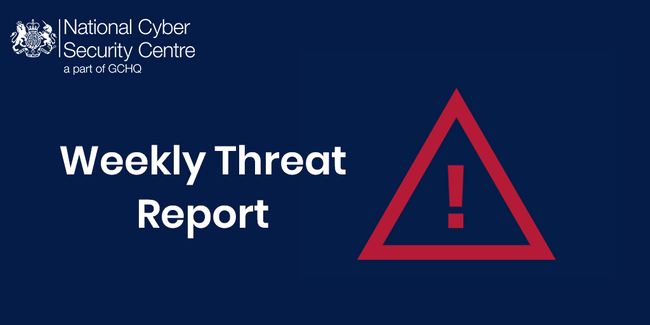
Further ransomware attacks on the UK education sector
An alert warning of further ransomware attacks on the UK’s education sector has been issued by the NCSC after a notable rise in cases over the past week.
The NCSC previously reported increases in ransomware attacks on the UK education sector in September 2020 and March this year, and has updated this alert in line with the latest activity.
Ransomware is a type of malware which can make data or systems unusable until the victim makes a payment, which can have a significant impact in an education environment.
More recently, there has been a trend for cyber criminals to also threaten to release sensitive data stolen from the network during the attack, if the ransom is not paid. There are many high-profile cases where the cyber criminals have followed through with their threats by releasing sensitive data to the public, often via “name and shame” websites on the darknet.
Alongside acting on the mitigation advice contained within the alert, the NCSC strongly emphasises the need for organisations in the sector to protect their networks from attack.
The NCSC has produced a number of practical resources to help educational institutions improve their cyber security, and they are encouraged to take advantage of our Exercise in a Box tool which helps organisations test and practice their response to a cyber attack in a safe environment.
Organisations in the sector are advised to sign up to the NCSC’s free Early Warning service, which is designed to inform organisations of potential cyber attacks on their network as soon as possible.
Ransomware strikes global meat supplier
The world’s biggest meat processing company, JBS, has fallen victim to a ransomware attack.
The company, based in Brazil, has reported that computer networks had been hacked which resulted in operations in the US, Australia and Canada being shut down temporarily.
The White House has confirmed the FBI are investigating the incident as well as reports that the attack may have come from a criminal organisation based in Russia.
Ransomware is a type of malware that prevents you from accessing your computer or the data stored on it. Criminals will often ask for a ransom payment before giving access back to victims but there is never a guarantee this will happen.
The NCSC has published guidance for organisations looking to protect themselves from malware and ransomware attacks. We have also recently published a blog post about what board members should know about ransomware and what they should be asking their technical experts.
Woman charged for sending phishing emails to political candidates
A woman in the United States has been charged with sending phishing emails to candidates for political office, according to court documents.
She is accused of impersonating senior political campaign officials and Microsoft ‘Security Team’ staff to try to trick candidates and campaign staff into revealing account credentials.
In some cases, the phishing emails, sent last year, asked recipients to enter their credentials into an attached spreadsheet or to click a link to a Google Form where they were asked to fill in their details. She has been charged with attempted unauthorised access to a protected computer.
Phishing poses a serious threat, and attackers may send out untargeted emails to many people or target specific individuals (known as spear phishing).
The NCSC has published guidance to help individuals spot suspicious emails, phone calls and text messages and deal with them. We have also produced advice for individuals working in politics aimed at helping them reduce the likelihood of falling victim to a cyber incident.
NCSC © Crown Copyright 2021


